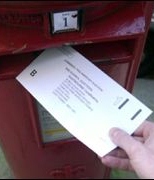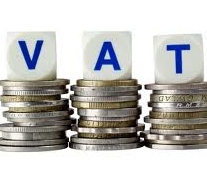Archive for July 5th, 2012

Air arrivals continue to grow with 7.5% rise in May
 (CNS Business): After a slight fall in April, air passengers arriving in the Cayman Islands increased once again this May when compared to the same month last year, statistics from the Department of Tourism have revealed. The almost continuous rise in tourism arrivals which began some two years ago saw a 7.5% increase in May compared to 2011, which had also recorded a significant increase on 2010. This May was the second best since 2001, with 25,193 arriving at the airport. Meanwhile, down at the George Town port, arrivals were considerably more disappointing. Arrivals fell below last year’s figure to 90,551, the worst cruise arrival statistics for May since 2000. Read more on CNS business
(CNS Business): After a slight fall in April, air passengers arriving in the Cayman Islands increased once again this May when compared to the same month last year, statistics from the Department of Tourism have revealed. The almost continuous rise in tourism arrivals which began some two years ago saw a 7.5% increase in May compared to 2011, which had also recorded a significant increase on 2010. This May was the second best since 2001, with 25,193 arriving at the airport. Meanwhile, down at the George Town port, arrivals were considerably more disappointing. Arrivals fell below last year’s figure to 90,551, the worst cruise arrival statistics for May since 2000. Read more on CNS business

Clock ticks on deadline for postal vote applications
 (CNS): With the much anticipated referendum on one man, one vote and single member constituencies only two weeks away, the deadline for those wishing to apply for a postal ballot is Friday. Campaigners from the OMOV movement are urging people to ensure that if they will not be on island on referendum day, which is Wednesday 18 July, that they apply to vote by post. Following the premier’s decision to allow the vote before the May general election but selecting a July date and insisting on 50% of the entire electorate plus one vote set a significant challenge for those spearheading the campaign for a more democratic system.
(CNS): With the much anticipated referendum on one man, one vote and single member constituencies only two weeks away, the deadline for those wishing to apply for a postal ballot is Friday. Campaigners from the OMOV movement are urging people to ensure that if they will not be on island on referendum day, which is Wednesday 18 July, that they apply to vote by post. Following the premier’s decision to allow the vote before the May general election but selecting a July date and insisting on 50% of the entire electorate plus one vote set a significant challenge for those spearheading the campaign for a more democratic system.
A spokesperson for the OMOV movement urged everyone that supports OMOV to ensure that they vote and, if they are away, not to miss this Friday’s deadline for an absentee vote.
As a result of the high bar set by the government in order to defeat its own referendum, it will need 7,582 'yes' votes to carry and anyone who supports OMOV but misses their chance to vote will be adding to the ‘no’ vote.
Further details on absentee voting as well as mobile voting for those who are working on referendum day or those who are infirm and unable to get to the polls is available on the elections website at www.electionsoffice.ky

VAT a step closer for people of TCI
 (CNS): Despite growing opposition across the territory people in the Turks and Caicos Islands are more than likely going to paying VAT in the very near future. The new VAT Bill passed its reading with the TCI Advisory Council on Wednesday paving the way for the bill to the Consultative Forum for debate next week. Acting Governor Patrick Boyle who headed the session said the introduction of VAT was “hugely important for the future development’ of the UK’s overseas territory where direct rule was imposed in 2009 following a corruption scandal and massive mismanagement of public money. “VAT will help ensure that public services receive a steady and predictable income,” he added.
(CNS): Despite growing opposition across the territory people in the Turks and Caicos Islands are more than likely going to paying VAT in the very near future. The new VAT Bill passed its reading with the TCI Advisory Council on Wednesday paving the way for the bill to the Consultative Forum for debate next week. Acting Governor Patrick Boyle who headed the session said the introduction of VAT was “hugely important for the future development’ of the UK’s overseas territory where direct rule was imposed in 2009 following a corruption scandal and massive mismanagement of public money. “VAT will help ensure that public services receive a steady and predictable income,” he added.
“Public finances have fluctuated wildly in recent times. Under the present system if the money dries up what do we do – stop providing essential services?,” the acting governor asked rhetorically in the wake of the council’s approval but in the face of mounting local opposition.
“I am certain that the incoming Government in November will be grateful to benefit from such an improved future cash flow. The introduction of VAT will help put this country on a stronger footing for the future by spreading the same tax take over a broader more stable range of sources,” Boyle said. “The introduction of VAT is not about taking more tax, it is about creating more stable public finances.
He said the interim government had listened to concerns about cost increases and making a large number of things zero rated.
“We have ensured that the consumer will not pay VAT on their electricity and water supplies, nor will they pay more for their VAT exempt essential items – rice, flour, fresh meat, fruit and vegetables – and a host of other everyday items too. We also made sure that VAT was not applied to resort Strata fees, which was a key piece of feedback from the Consultation period,” the acting governor added.
VAT will be applied however to legal, accounting, architectural or air-conditioning services which have not previously included tax in their sales price. This means the cost of doing business will increase by 11% though the Boyle stated that registered firms will have the benefit of being able to offset the VAT that they pay out to their suppliers against the VAT that they bring in from their clients.
“We also believe that it is fairer to have all significant businesses here in the Turks and Caicos Islands paying their share of the tax burden,” he said. “The proposed rate of VAT of 11% is deliberately set no higher than Accommodation Tax. Indeed, VAT will replace this and a number of other taxes will actually make administration easier for both Government and business.”
Boyle claimed that government had listened and was trying to do what is right for the future of the Turks and Caicos Islands. “I shall work with the Chief Financial Officer to ensure that in addition to the planned development programme with businesses, that we also reconsider how we might better communicate the undoubted benefits of VAT to the TCI with the consumer too.”
However, Turks and Caicos Independent Business Council opposing the new tax has claimed that there has not been any real consultation over what it sees as an inappropriate tax for the islands. Echoing the new business action group’s sentiments the local architectural profession has also raised its objections and concerns this week. Members of the profession say their industry is already hard hit by the numerous challenges in the local economy and that VAT is fundamentally flawed and not conducive to economic sustainability in TCI.
The profession presented government with a position paper setting out alternative proposals but according to a letter sent to the TCI government’s chief financial officer on 3 July by the local architects no feedback was received.

$81M deficit row rolls on
(CNS): The MLA for East End has revealed a note prepared by the financial secretary in the spring of 2009 advising the government of the day that it was running a deficit of $18 million, only three months before the year finally ended with the now infamous $81 million deficit. The document, which was dated 30 April, showed a decline in revenue of $14 million on the budget predictions for that year but an increase in spending of $7 million. The revelations in the Legislative Assembly by Arden McLean further fuelled the long-running dispute between the current UDP and former PPM governments over how the deficit managed to increase so significantly in the last quarter of the 2008/09 financial year.
The figures supplied by the financial secretary were based on the general ledgers and McLean questioned, once again, how in the last three months of that year the deficit could have grown by a further $63 million.
“It is extremely unfair for this government to come here and keep saying that the PPM had an $81 million deficit and that his government has improved it, yet we can’t see the accounts that can explain all of this,” McLean told his legislative colleagues. He said the document (posted below) demonstrated that some three weeks before the election (the note was presented at the beginning of May) the financial secretary was advising Cabinet that the government was running an actual deficit far smaller than the figure it is now accused of accumulating.
The opposition has over the last three years persistently queried the current government’s claim that there was an $81 million at the end of the PPM’s administration and the UDP has in return persistently pointed to the significant deficit figure, along with the spending on the high schools, as the root of all of its financial difficulties.
During the debate McLean pointed out that when Cabinet first heard of a potential deficit, the PPM government had pushed for cuts across the civil service. When the Cabinet note was presented to them in May, it appeared things had worked and the government had averaged a monthly deficit of $2 million for the first 9 months of the year.
However, the figures claimed by the UDP when it came to office later that year suggested that the new government then proceeded to run a more than $21 million average monthly deficit for the last three months of the year, something McLean said was hard to believe.
In response to the Cabinet note being made public, the premier spent a considerable portion of his reply to the debate on the government’s stop-gap budget motion referring to a speech made by Financial Secretary Kenneth Jefferson in July 2009 in which he sought to explain the chain of events that led to the eventual $81 million shortfall.
Jefferson claimed at the time that he forecast a $68 million deficit as early as February 2009 and government worked towards decreasing the forecast deficit of Cl$68 million to the Cl$29 million deficit that was presented in the 2008/9 supplementary budget brought to the Legislative Assembly on 20 March. But even as far back as October, Jefferson said, he was warning government of a major deficit due to increasing expenses and a major fall in revenue. It was then that a policy directive was issued to all public entities to reduce operational expenditures by 6% and implement a staff freeze.
Jefferson said he had warned that without bringing a supplementary budget there was a real danger that the promised reductions would not materialize, but the PPM government did not heed that advice and agencies were allowed to continue to spend their original budget.
By February Jefferson was forecasting an operating deficit of $68 million, and according to the statement he gave in July of 2009, this forced Cabinet to make even more drastic spending cuts.
“There is absolutely no doubt that Cabinet was informed by the Portfolio of Finance and Economics that a forecast for the year to 30 June 2009, done as of 9 February 2009, indicated a deficit position of Cl$68 million,” Jefferson claimed and added that the supplementary budget eventually brought to the House was unrealistic.
Given all of this, it is still not clear why a deficit of only $18 million was forecast by the FS in the Cabinet note presented just weeks before the election.
As government has still not presented any consolidated accounts since 2004, the actual spending and earnings of the PPM administration have still not been made public, and despite promises by the current administration to address the issue of financial reporting, government has failed to complete any annual reports.
Statement in the Legislative Assembly 1 July 2009 by Financial Secretary Ken Jefferson (pdf)